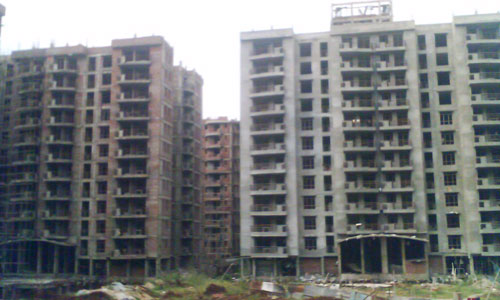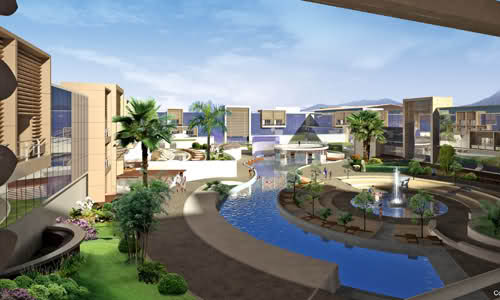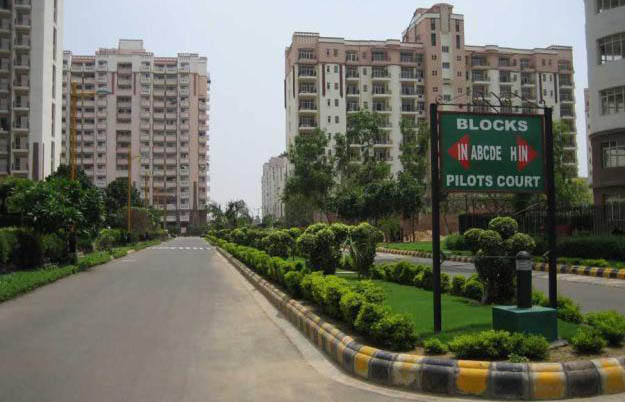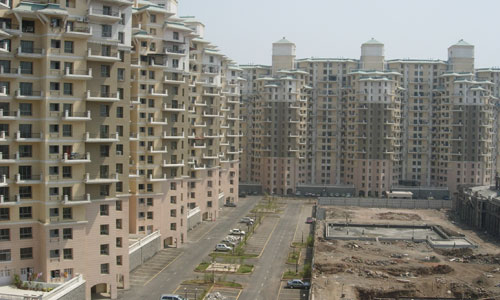
Indian realty sector to face tough time in next 12 months
With the US and European debt crisis affecting sentiments across the world, the Indian real estate sector is likely to see a gloomy phase in the next 12 months.

With the US and European debt crisis affecting sentiments across the world, the Indian real estate sector is likely to see a gloomy phase in the next 12 months.

ICICI Ventures-backed Delta Corp has acquired 51 per cent stake in Daman Hospitality Pvt Ltd for Rs 50 crore in its second acquisition this year.

Gurgaon initially gained prominence as an outsourcing centre for major international companies that found it cheaper to locate their back-end operations in India due to the availability of high-quality but cost-effective employee resources. GE Capital initiated this trend and was the first multinational company to enter Gurgaon in 1997.

Track2Realty: The top six cities of India are expected to see a total of 50,000 new hotel rooms across categories in the next 5- 6 years. This is in response to the steady growth the hospitality sector has recorded over the last few years. 2012 alone is expected to see 14,800 fresh keys by the end of the year. Out of the total expected supply for 2012, 2000 new hotel rooms have already entered the market. These are the findings of a report by Cushman & Wakefield (C&W)and Confederation of Indian Industries (CII).

The surge in spiritual tourism can be attributed to enhanced infrastructure, including well-connected roads, airports, and public transportation, as well as the development of various accommodation options such as hotels, guesthouses, and wellness centres. To meet the growing demand for spiritual travel, local governments and businesses are joining forces to create unique retail experiences. This includes integrating local practices into the design and offerings of shops, restaurants, and hotels. Cities like Amritsar, Varanasi, Madurai, Puri, Guruvayur, etc. are leveraging their unique culinary traditions and local fashion expertise to further attract and engage visitors.

Godrej Properties has strengthened its brand leadership for the 2nd consecutive year. The 9th edition of Track2Realty BrandXReport 2020-21 finds that the K-shaped recovery in the Indian real estate has helped most of the organized developers with corporate governance, at the cost of the large universe of the companies operating like personal fiefdoms.

Year 2018 was a veritable roller-coaster ride for the Indian real estate. Despite signs of recovery across segments, the liquidity crunch – further exacerbated by the NBFC crisis – put all industry stakeholders on tenterhooks.

Bottom Line: Kochi expects investments of Rs. 2,076 crore; sustainable…

Track2Realty: The year 2014 has been quite fruitful for the real estate sector in terms of business sentiment, although the real effect of many of the policies and amendments announced in 2014 will take effect only in 2015. Starting from Union Budget FY2014-15, where affordable housing was considered on par with infrastructure, to relaxation of rigidities in the Land Acquisition and Real Estate Regulatory Bill, India’s new Prime Minister has been offering the India real estate sector consistent doses of energy.

Track2Realty Exclusive: There are very few property markets across the country where the developments have been holistic. Some have grown as the residential zones, while others have developed as commercial zones. Even in commercial segment certain markets are known as retail markets while the rest of the markets have more office spaces. The locations close to the Central Business Districts (CBDs) get to see a few hospitality projects. Navi Mumbai, however, defies this growth pattern of the property market.
